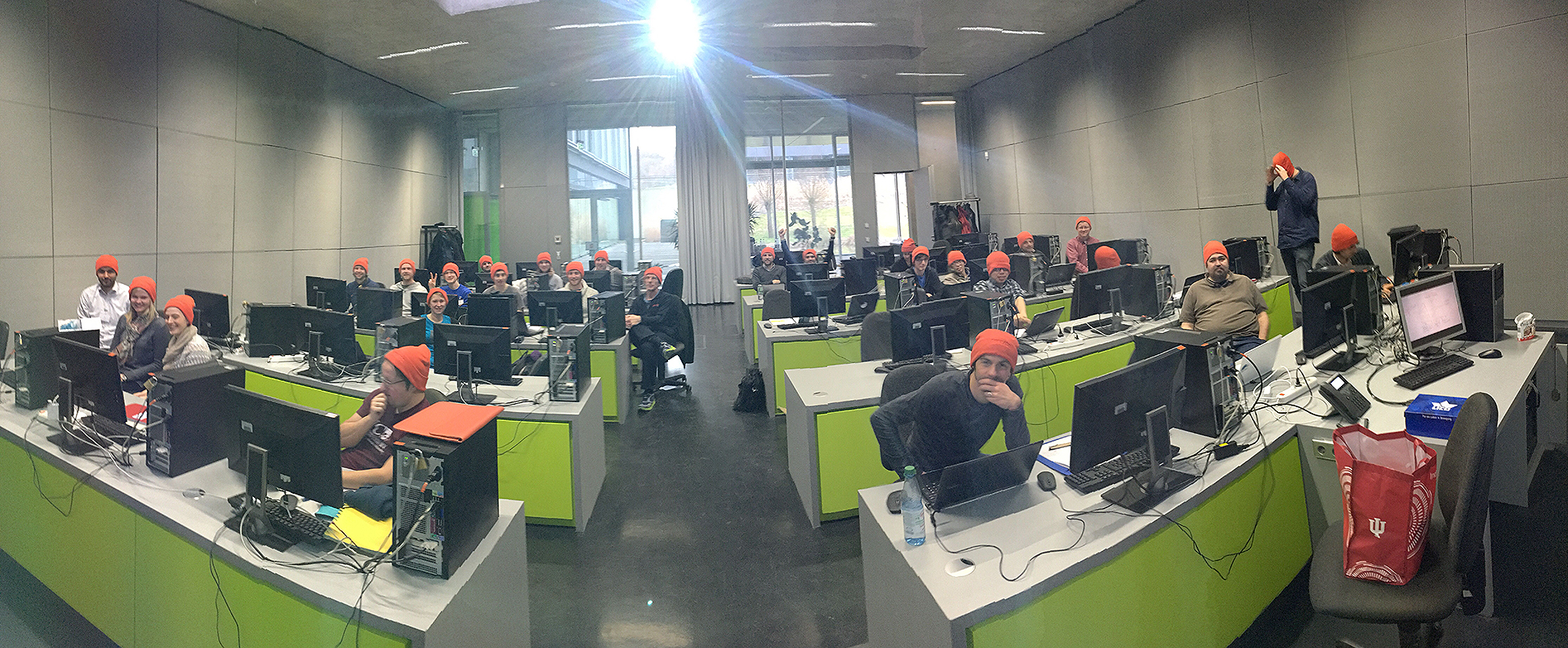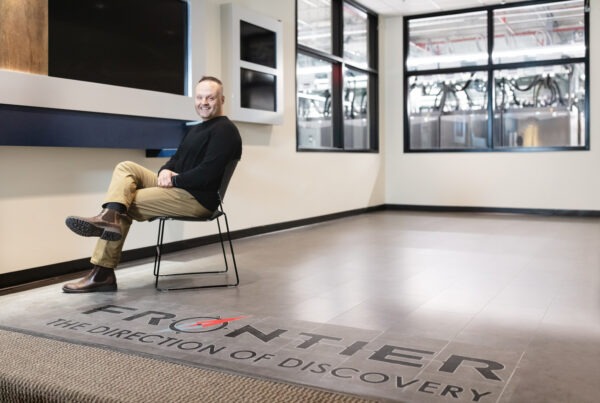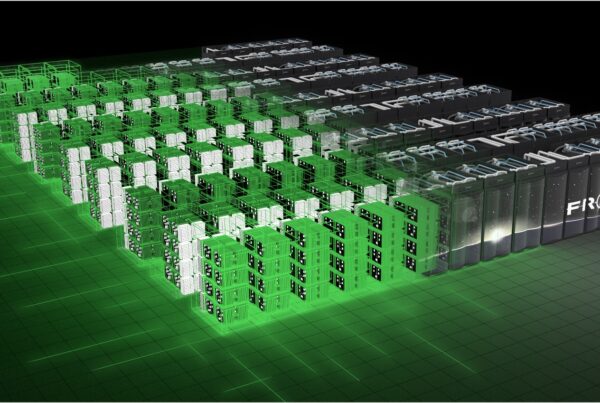
The most recent event in the ongoing GPU hackathon series was co-sponsored by the OLCF and cohosted by the Dresden GPU Center of Excellence and ForschungszentrumJulichResearch Center in Dresden, Germany, last month. Here, participants are literally putting on their OpenACC hats.
Hackathon series leads to collaboration, outreach opportunities
Collaboration, coding, and conversation were all on the agenda for the most recent GPU Hackathon—part of an ongoing series—co-sponsored by the Oak Ridge Leadership Computing Facility (OLCF) and co-hosted by the Dresden GPU Center of Excellence and Forschungszentrum Julich research center in Dresden, Germany, last month.
Building on the success of the previous five sessions, the Dresden hackathon welcomed 34 attendees on six teams.
“I was astonished by the extremely intense work atmosphere throughout the 5 days,” said Guido Juckeland, head of the Computational Science Group at Helmholtz-Zentrum Dresden-Rossendorf research center, one of the organizers of the hackathon. “I have never witnessed this at what is essentially a training event. I applaud the teams who went from no or limited parallel programming knowledge to running massively parallel within just a few days.”
Added Julich Supercomputing Centre’s Dirk Pleiter: “It was exciting to see how teams made it to—for them—unexpected levels of performance.” Pleiter, professor for theoretical physics at Regensburg University, noted the excitement of the team members when they realized this effort would enable them to do new research.
Each hands-on hackathon features mentoring opportunities with the goal that teams leave with applications running on GPU-accelerated computers or at least possess a clear roadmap of how to get there. Mentors from national laboratories, universities, and vendors bring extensive experience to the event.
With expertise in training and experience with previous hackathons, the OLCF’s Fernanda Foertter served as a resource for the event while helping expand training collaborations for the OLCF, a US Department of Energy (DOE) Office of Science User Facility located at DOE’s Oak Ridge National Laboratory.
Foertter said one of the teams— Soft Matters!—had significant success at the Dresden event. “Before coming to the hackathon, they had really restructured their code, so they were starting fresh,” Foertter said. “They were really prepared for this event, and they had success in approximately 2 days. Then, for the most part, they were adding to their gains throughout the rest of the week.”
The team PALM4GPU brought the most complex code, with tens of thousands of lines. They underwent the most extensive code restructuring of all the teams but also derived a clear roadmap to better performance on both the GPU and the CPU.
Peter Steinbach of Dresden’s Max Planck Institute of Molecular Cell Biology and Genetics served as one of the team’s mentors. “As we didn’t finish completely porting the code and all required data transfers, it was nice to see that performance was getting on par with the CPU version. But by that time, it was already Friday afternoon and time to leave. Too bad; it was so much fun,” he said.
The goal of each hackathon is for current or prospective user groups of large hybrid CPU–GPU systems to send teams of at least three developers, along with either a potentially scalable application that needs to be ported to GPU accelerators or an application running on accelerators needing optimization. The six teams’ success in meeting this goal brings momentum to the next event at the University of Delaware in May, with another six teams scheduled to attend.
Foertter said the University of Delaware gathering will add new science domains to the mix, with teams coming from NASA, Brookhaven National Laboratory, and the National Cancer Institute/National Institutes of Health, along with three University of Delaware teams.
“I am eagerly looking forward to a productive hackathon with several exciting teams,” said University of Delaware team leader Sunita Chandrasekaran, assistant professor of computing and information sciences at the University of Delaware. “Our goal is to introduce the potential power of GPU-based performance enhancements to six impactful scientific applications.
Oak Ridge National Laboratory is supported by the US Department of Energy’s Office of Science. The single largest supporter of basic research in the physical sciences in the United States, the Office of Science is working to address some of the most pressing challenges of our time. For more information, please visit science.energy.gov.





